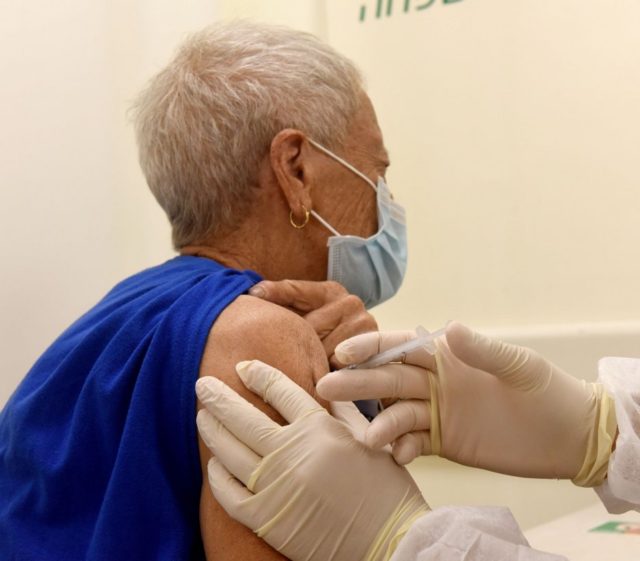Aug. 18 (UPI) — With the emergence of the Delta variant, COVID-19 vaccines offer less protection against infection, but still prevent serious illness, according to data released Wednesday by the Centers for Disease Control and Prevention.
Between May 3 and July 25, as the Delta variant grew from less than 2% of new cases to more than 80% nationally, vaccine effectiveness — their ability to prevent new infections — declined to 80% from 92%, the data showed.
However, those fully vaccinated against the virus are still less likely to require hospitalization even if infected, the agency said.
The vaccines are up to 95% effective at preventing COVID-19-related hospitalization, it said.
“In this study, current COVID-19 vaccines were highly effective against hospitalization for fully vaccinated New York residents, even during a period during which prevalence of the Delta variant increased [and] … societal public health restrictions eased,” the CDC researchers wrote.
“However, during the assessed period, rates of new cases increased among both unvaccinated and fully vaccinated adults, with lower relative rates among fully vaccinated persons,” they said.
The figures are based on an analysis of new virus cases in New York state between May 3 and July 25, according to the CDC.
During that period, the percentage of fully vaccinated adults rose to 66% from 40%, the data showed.
People who have received both doses of the Moderna or Pfizer-BioNTech vaccines or the one-shot Johnson & Johnson product are considered fully vaccinated.
Out of 10.1 million fully vaccinated adults statewide, there were 9,675 new COVID-19 cases, called breakthrough infections, a rate of well under 1%, the CDC said.
Conversely, more than 38,500 new cases were reported among nearly 3.8 million unvaccinated adults over the same period, the agency said.
About 20% of the unvaccinated adults infected required hospital care, compared to about 11% of those who were fully vaccinated, the data showed.
In a separate CDC analysis, also released Wednesday, both two-dose vaccines offered 75% protection against COVID-19 infection in adults with chronic health conditions, including diabetes and heart disease, for up to six months.
The two vaccines also prevented new infections more than 80% of the time in adults age 65 years for up to six months, the data showed.
However, they only provide 55% protection against infection for six months in immunocompromised adults, such as those being treated for cancer and rheumatoid arthritis, the agency said.
The CDC, National Institutes of Health and the Food and Drug Administration announced Wednesday that a booster dose for the two-shot vaccines will available for all fully vaccinated people eight months after they received the second dose.
The target date to begin the booster shots is Sept. 20, subject to FDA and CDC signing off on its safety and effectiveness.
In addition, there is evidence that the vaccines are less effective at protecting against infection with the Delta variant among nursing home residents, according to the CDC.
Before to the rise of the more contagious strain, two-dose vaccines provided 75% protection against infection, a figure that has declined to 53% since, it said.
“Both [the] Pfizer-BioNTech and Moderna … vaccines were highly effective in preventing … infection in nursing home residents early after vaccine introduction,” the CDC researchers wrote.
“However, the effectiveness among this population in recent months has been significantly lower” due to the Delta variant, they said.

COMMENTS
Please let us know if you're having issues with commenting.